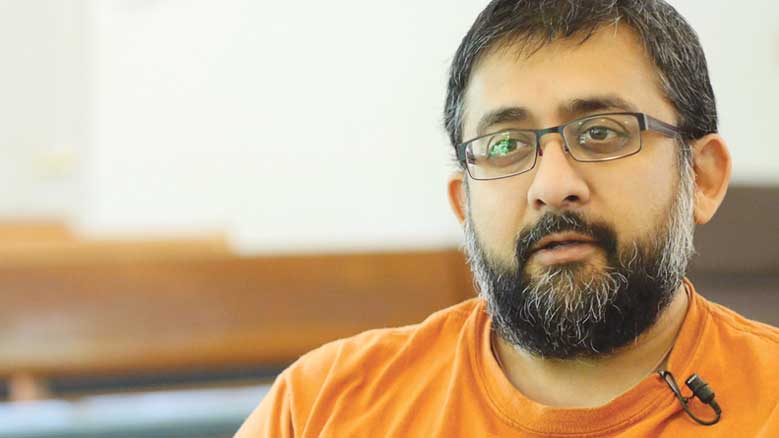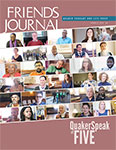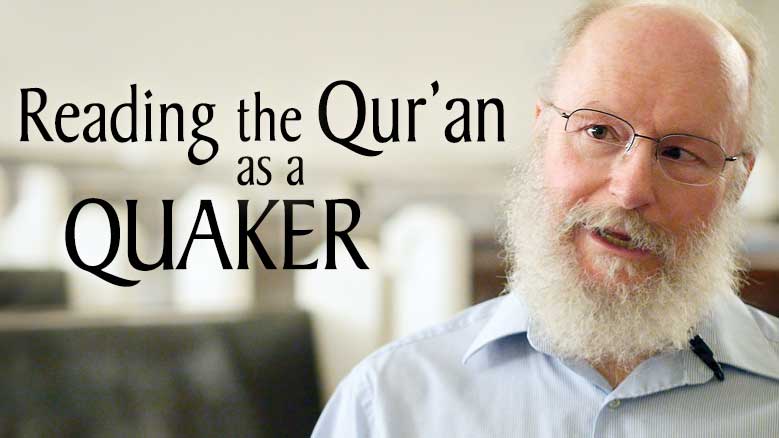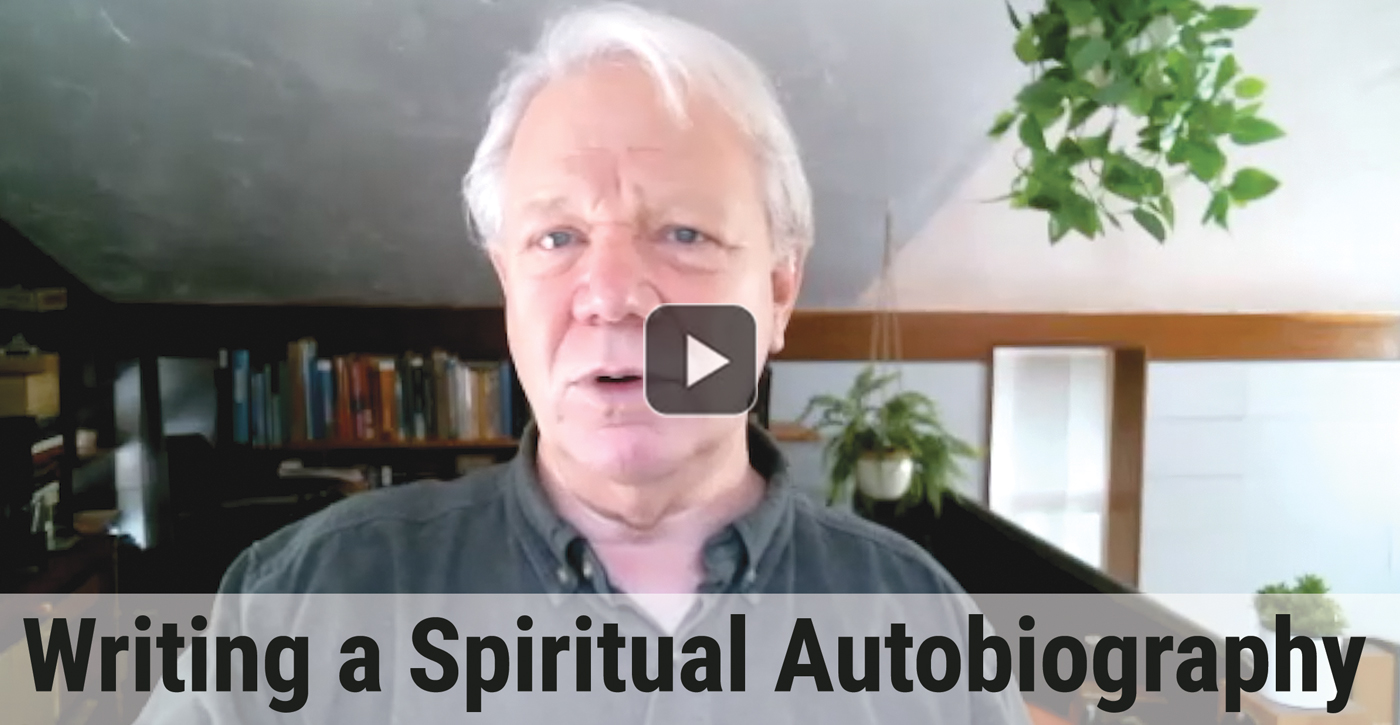
Ihdinā ṣ-ṣirāṭa al-mustaqīm, Ṣirāṭa al-laḏīna anʿamta ʿalayhim ġayri l-maġḍūbi ʿalayhim walā ḍ-ḍāllīn
Show us the straight path, the path of those You bestowed favor upon, not anger upon, and not of those who go astray.
—Qur’an Surah Al-Fatiha 1:6-7
This Surah (chapter from the Holy Qur’an) is the most known Surah of all. Repeated in each rakah of each daily prayer, a Muslim recites this up to 50 times a day. It is guaranteed to be known by all the faithful, ingrained in their memory and message. It is a message that, in its last two verses, implores each and every Muslim to seek God’s guidance to that path and not be led astray.
For me there is no clearer definition of being asked to seek the Divine Light.
Since recording the video “Why I Am a Quaker and a Muslim” for QuakerSpeak, it became my dubious honor to achieve minor notoriety as “the Muslim Quaker.” In both circles—Quaker and Muslim—there was abundant criticism. Some in the Muslim community reviled me as an apostate. Rather than seeing Quakerism as the lens through which I practice Islam, the immediate view is that I have chosen to build a syncretic spirituality: my own Lego-fantasy religion built from the multicolored bricks of different sets: part Jedi, part medieval castle, all the fun, and none of the discipline. For some on both sides of the spiritual coin, I am astray. I have lost my way.
Which way is that precisely? For some, if I am not a member of a meeting steeped in 100 years of Friends United Meeting tradition, I am not a Quaker. For others, if I do not practice Islam as a Wahabi, I am not a Muslim. In all my years living and working with different people around the world, I have learnt something every Quaker and Muslim should know: we all have our own path to the Light.
Certainly some—Jesus Christ and the Prophet Muhammad (peace be upon him) come to mind—are better examples to follow when it comes to how we treat our planet and its residents. But even they taught us that reaching that of God within us can take many forms. From those who risk life and limb daily for others to those who dedicate themselves to the protection of our planet, we all have our divine calling. To say one person’s path is truer or straighter than another’s, to say that there is only one way to God, or to say that creed or ritual will get you there—these are all ways to divide us under false flags, when the truth is we are all one people, each traveling under our own colors.
I’ve found that the “my way is the right way” position, which mars reasoned argument, seemed to only lead off a cliff.
It was debates such as this that came to the fore after my QuakerSpeak video and that drove home to me how divisive identity politics has become. Tribalism in the guise of nationalism and religious fervor has become the new religion. Some of my generation, and younger, adhere to forms of Islam, Judaism, and Christianity, and in their zeal, they seem far removed from the more sedate practices of our recent ancestors. You could even argue that in my Lego-brick theology, I have done the same by breaking away from the Islam that my parents practiced and choosing something altogether new that I could become more passionate about. There is a difference, however, in having that identity define my judgment. Identity-driven politics could move one to say that all I am and who I am is defined by the groups I belong to. My identity does not become so all-encompassing and important that it negates the oppression and suffering of others.
In discussions I’ve had since my video, I’ve found that the “my way is the right way” position, which mars reasoned argument, seemed to only lead off a cliff. The flip side of this, the negative interrogative, is an equally damaging vehicle for assertions: “Don’t you think this makes you a hypocrite?”
If my video has helped in some way, that is all I could ever hope for.
Today was the last day of Ramadan and the beginning of Eid, the celebration at the end of a month of fasting. Fasting is just one part of Ramadan. More than simply abstaining from food from sunrise to sunset, it asks us to observe God more often, to be as true as possible to our moral character, to be more ready to forgive, to not speak ill of others, and to not get angry. This is not to say that we live with moral abandon the rest of the year round. Knowing we are imperfect, however, Islam asks us to take this month to focus our energies and exercise our disciplines of faith and practice. We are asked to be the best version of ourselves; knowing full well that try as we might, it is hard for us to be so every single day. It is the month that we can try to shine as an example of our own best path to God. And so by our example, we encourage others to find their own unique way in the Light.
If my video has helped in some way, that is all I could ever hope for. My sincerest thanks to the wonderful Jon Watts who helped bring out, in myself and others, the best of Quakerism and Islam.






This is one of my favorite Quaker Speak videos, because Naveed Moeed does not adopt an either/or stance that seems to be demanded by today’s tribalism. It seems that the two traditions–Quakerism and Islam–together forms a deeper spirituality than the excluding one or the other.
Do you see Jesus as the Son of God or a Prophet?
Do we not all have the Light of God within us, no matter what our label?
The issue is not that one path is right and other paths are wrong.
This issue is that the pathways offered by great Religious Traditions are different.
While some of the spiritual obstacles all of us confront may be similar, each Religious Tradition offers different resources and trails to overcome them. The “summit” of the spiritual journey is probably the same, but the pathways there are very diverse.
Those who claim that all the pathways are the same, probably have not ventured too far on any particular path.
Committing to a particular path will necessarily separate us from others on different paths, until we approach closely the “summit.”
Why does that question have to be an “either or”?
As a Quaker, I have learned so much from the inter-faith group who came together to help welcome and assist Syrian Refugees. We are all focused on welcoming the stranger in our own ways, and there is not any conflict when it comes to helping families who are fleeing violence and the loss of their country. The differences in our theology are insignificant in comparison to the common desire we all have to help those who are suffering. Although I have read more than a little about Sufism, the religious practice of my Muslim acquaintances is admirable and I have learned many valuable spiritual lessons from then. There is no conflict, unless we chose to introduce it.
Liberal quakerism is “welcoming” in the sense that you can bring your own theology to Quaker spirituality because it’s up to you to define it in a way that makes sense to you personally.
It’s kind of like the golden calf isn’t it? Let’s fashion God (and spirituality) based on my own understanding?
We can be happy and celebrate that our spiritual practice makes sense to us now, whatever label we park it under. But in the end, it really doesn’t matter, in the much larger scheme of things, what we think. Who are we to define God? How can we know Him unless He makes Himself known to us? Hence, the holy scriptures. And, if the Word is spirit, how can we understand except by divine inspiration of the Holy Spirit? The light within?
Do we all have the same light?
Unless God is schizophrenic.
Or we are the ones deciding how and what God is that makes the most sense to us.
Though that sounds nice, as if we’re yearning to know Him more. The method of fashioning Him based on what we want of think, is to put it bluntly, blasphemy.
I think the above observation probably applies across religions.
In this “tolerant” society where people prefer to be politically correct, it’s necessary to include this disclaimer… When I say it’s “blasphemy”, this is “just” my opinion, I’m not hating on him. My opinion, honestly, doesn’t matter much. What’s God’s take on it? That’s what would be more important to this friend.
Again, I reiterate, it’s what God thinks, it’s not about what we think God thinks (golden calf). So it’s back to the scriptures to study for ourselves what He said about Himself and to depend on the light within for holy revelation (based on what God says).
Margaret: Does it matter?
Otherwise readers may find this (British) Quaker Universalist Group pamphlet no. 34 by another Quaker Muslim/Muslim Quaker (with Jewish roots) of interest:
https://qug.org.uk/pamphlets-2/pamphlet-34/
Thank you for your affirming thoughts and words! You and I think and feel very much alike. If only we could dispense with all doctrines – the beliefs one much accept to gain membership to the tribe – the more we might focus on that of God (by whatever name) in us, and in each other.
Edward Elwall appears to have been a unitarian Quaker in the early 18th century. Although he was called Jew Elwall for his Shabbat observance, and his writings reveal him to be rather Quakerish in language (they bristle with friend and thee) he wore a turban and Turkish dress. Nothing new under the sun, so no reason to fear.